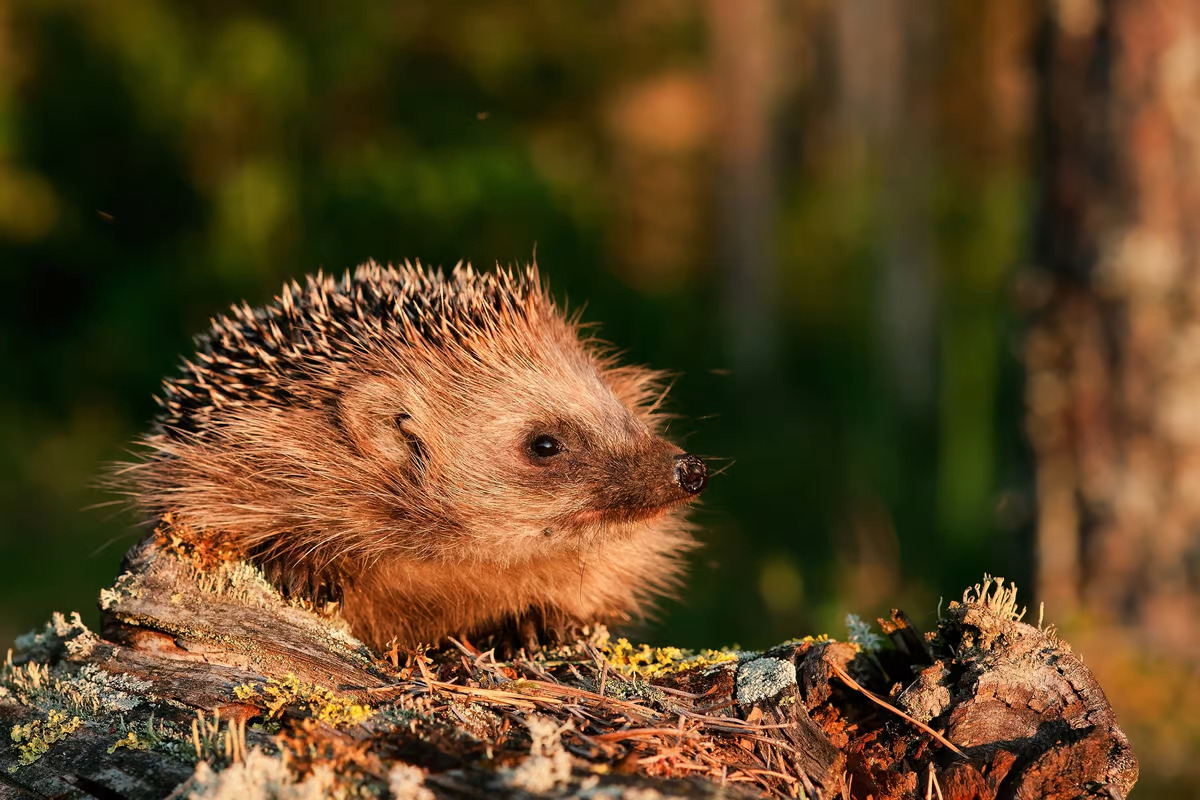
The European hedgehog is one of the species found to be contaminated with plastic in a new study. Depositphotos
“Much is known about the impact of plastic on aquatic ecosystems, but very little is known about the same with terrestrial systems,” said study author Fiona Mathews, Professor of Environmental Biology at the University of Sussex. “By analyzing the droppings of some of our most widespread small mammals, we’ve been able to provide a glimpse of the potential impact plastic is having on our wildlife – and the most commonly found plastics leaking into our environment.”
The scientists explored the question of whether small mammals in the UK are ingesting microplastics by collecting 261 fecal samples from seven different species, and examining them with a form of infrared microscopy. This revealed plastic polymers in 16.5 percent of the samples and in four out the the seven species, with the European hedgehog, wood mouse, field vole and brown rat all found to be “plastic positive.”
The scientists were expecting to see higher concentrations of plastics in samples collected from urban locations and lower concentrations among herbivores. To their surprise, they found ingestion to occur indiscriminately in all locations and in animals with different dietary habits, including herbivores, insectivores and omnivores.
“It’s very worrying that the traces of plastic were so widely distributed across locations and species of different dietary habits,” said Emily Thrift, study author from the University of Sussex. “This suggests that plastics could be seeping into all areas of our environment in different ways. We’re also concerned that the European hedgehog and field vole are both species suffering declines in numbers in the UK.”
Interestingly, the scientists also found that more than a quarter of the plastics were bioplastics, which are designed to degrade more easily than traditional forms. The team believes the plastics made their way into the animals through direct ingestion, where they are mistaken for food or nesting materials, or inadvertently, through the consumption of contaminated prey.
“In the UK, plastic pollution can often seem like a problem somewhere else when most images are of polluted shorelines of tropical landscapes, or charismatic organisms like turtles or sea lions,” said study author Adam Porter. “This study brings the focus home, into our lands and in some of our much beloved mammal species. Further it demonstrates that the amount of plastic waste we produce is having an impact. We must change our relationship with plastic all together; moving away from disposable items and moving towards replacing plastic for better alternatives and establishing truly circular economies.”
The research was published in the journal Science of the Total Environment.
Source: University of Sussex
–
–









Most Viewed
Baldness discovery paints molecule as potent stimulator of new hair growth
Morphable VW pop-top RV erases divide between camper van and motorhome
Minimalist mid-drive city ebike rolls with carbon fiber and Bosch power
Bacteria-made biofuel packs higher energy density than jet fuel
Rare sights impress in the 2022 BigPicture competition winners
Gulfstream G800 ultra-long-range business jet makes maiden flight
Methane converted into methanol at room temperature – just add light
Drako’s electric hyper-SUV threatens downright dangerous speed
Specter 1 ebike sports full-carbon frame and 28-mph top speed
Decathlon makes its instant-pitch 2 Second Easy tent a triple
Ducati reveals the key numbers behind its electric MotoE racer
Dissolvable implant kills pain by cooling nerves – no drugs required
Ox-like cargo etrike tubs over 500 pounds or 8 children through city
Stratospheric balloon to lift telescope with giant mirror over Antarctica
Best of Britain: RIBA showcases UK’s finest new buildings